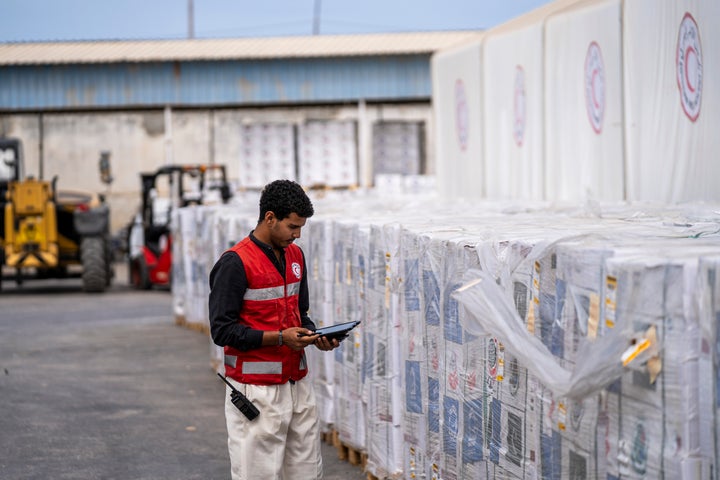🔴 Website 👉 https://u-s-news.com/
Telegram 👉 https://t.me/usnewscom_channel
As much of the world cautiously celebrates Wednesday’s announcement that Israel and Hamas have agreed to the first phase of a ceasefire deal, humanitarians who spent the last two years fighting to get lifesaving assistance to Palestinians say they are on standby to immediately surge aid into the war-torn enclave and prevent further deaths.
As part of the tentative agreement, Hamas intends to soon release all living hostages in exchange for thousands of Palestinians in Israeli captivity. The Israeli military will begin withdrawing from the majority of Gaza, most of which has been reduced to rubble.
“This is a chance for people who have been forced into the most depraved of conditions and circumstances to stabilize, grieve and reconnect with their communities,” Mercy Corps CEO Tjada D’Oyen McKenna said, adding that the aid group has enough humanitarian assistance at Gaza’s border for more than 160,000 people.
Israel will also reopen five crossings to initially allow 400 aid trucks a day before increasing to 600 — the minimum number of trucks the United Nations has recommended.
“We and our partners are preparing to move now. We have the expertise, the distribution networks, the community relationships in place to act,” U.N. Secretary-General Antonio Guterres said. “Supplies are in place and our teams are on standby. We can scale up food, water, medical and shelter assistance at once.
“But to turn the ceasefire into real progress we need more than the silencing of the guns,” he continued. “We need full, safe and sustained access for humanitarian workers, the removal of red tape and impediments, and the rebuilding of shelter infrastructure.”
Ali Moustafa via Getty Images
The U.N. has about 170,000 metric tons of food, shelter, medicine and other items sitting in storage outside Gaza and ready to enter the enclave in trucks as soon as a ceasefire is implemented, according to Olga Cherevko from the U.N.’s aid coordination office (OCHA).
Over the past two years, Israel’s military offensive — which many credible groups now call a genocide — has destroyed Gaza’s health care infrastructure, sewage system, agricultural land and bakeries, schools, cultural and religious institutions, and more than 90% of homes. Coupled with Israel’s blockade of most aid, Palestinians face starvation, sickness and death.
“Homes lie in ruins, livelihoods have vanished, and families are fractured. Beyond physician devastation, deep psychological wounds now threaten both the present and the future,” said Amroo Al-Zeer, Project HOPE’s senior protection officer in Gaza.
“This tragedy cannot be captured by statistics alone/ it is defined by profound human suffering that demands urgent global action before the last remnants of hope disappear,” Al-Zeer continued. “Recovering from this level of trauma will require years, possibly a generation of sustained mental health and psychosocial support.”

Majdi Fathi/NurPhoto via Getty Images
Humanitarian experts have long warned that even if a ceasefire is reached, rebuilding Gaza will be a Herculean effort that requires international support and accountability “to prevent impunity and ensure the cycle of violence is not repeated,” according to Oxfam America President Abby Maxman.
“The path forward must be Palestinian-led and rooted in the fulfillment of fundamental rights,” she said. “Negotiations on Gaza’s future must go beyond bricks and mortar – they must restore the foundation of daily life, rebuild shattered communities and offer pathways to healing and hope.”
The Israeli government is expected to finalize the agreement later Thursday before it goes to Egypt for approval, though humanitarians, Palestinians on the ground and health officials say Israel was continuing to bomb northern Gaza as of Thursday morning. Many Palestinians in Gaza, including aid workers, are hopeful but skeptical, given Israel’s history of breaking similar truces.
“A lasting ceasefire is needed, and this news is welcomed, but it is difficult to believe. In one hour, the team lives in war, and the next is supposedly in peace,” said a Palestinian team member of Mercy Corps who is remaining anonymous for their safety.
“This news brings back hopes for a future but does not bring back all the lives that were lost to this senseless violence, or the homes that have been destroyed. Where there is hope, there is equally deep grief and exhaustion.”

